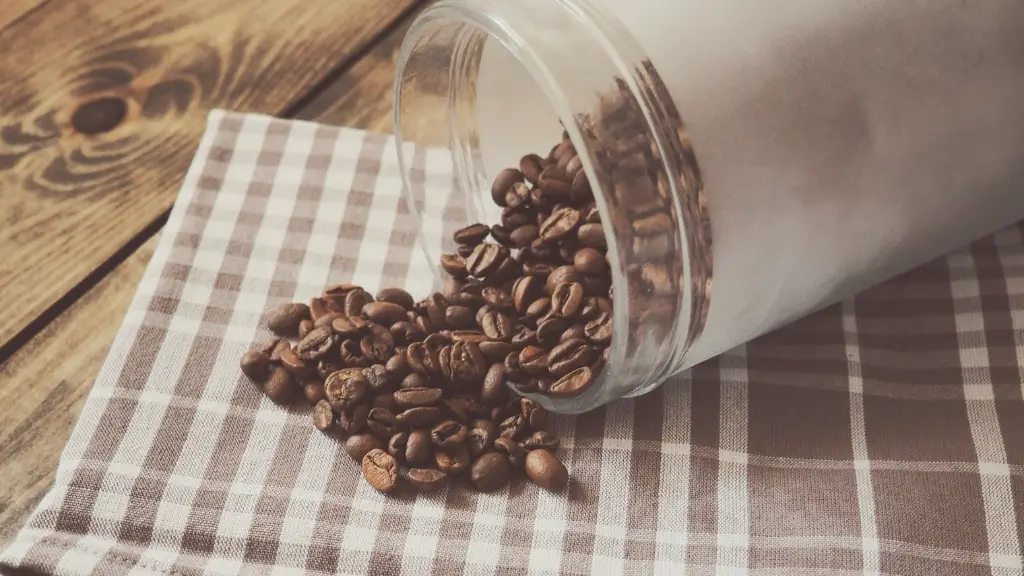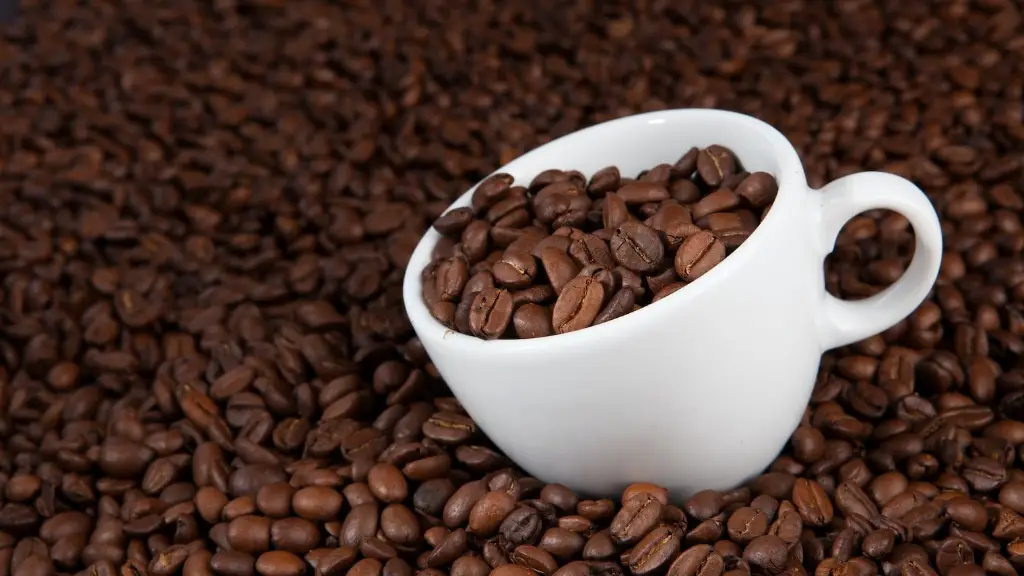Do you ever wonder why you feel so shaky after drinking your morning cup of coffee, even though it provides you with a certain sense of energy and focus? Coffee can be an essential part of our daily lives, so it’s no surprise that we often feel an intense reaction to it. To figure out why this is, let’s look at the science behind your cup of joe.
Caffeine is a stimulant drug, meaning it triggers your brain to become more alert and energized. In terms of how much caffeine is actually in a cup of coffee, the range is quite wide – from around 50 milligrams (mg) for a single shot of espresso to a whopping 400 mg for a big mug of drip coffee. The technical definition for a “heavy” coffee drinker is someone who drinks consistently more than 500 mg of caffeine per day.
These doses of caffeine can actually influence a variety of different neurotransmitters in the brain, such as epinephrine, dopamine and glutamate. The main effect is that caffeine can increase the activity in your central nervous system, leading to that “buzz” feeling. It also helps to enhance focus and concentration, as well as give you a nice boost of energy.
However, too much caffeine can actually have adverse effects on your body, such as increased heart rate, difficulty sleeping and jitteriness. This is why feeling shaky after drinking coffee is such a common occurrence. The overwhelming surge of adrenaline and dopamine can give you a surge of energy and alertness, but can also leave you feeling a bit twitchy and unsteady.
If you’re feeling shaky after drinking coffee, don’t worry – it’s a completely normal reaction that a lot of people experience. The best way to prevent this is to be mindful about how much coffee you’re drinking, and focus on drinking coffee that’s low in caffeine, like decaffeinated or cold brew. Additionally, drinking a balanced meal with your coffee can help to reduce the intensity of the caffeine’s effect.
How Does Caffeine Affect Your Health
In addition to shaky hands, too much caffeine can also cause other health problems, including anxiety, headaches, digestive problems, and heart palpitations. Caffeine is a diuretic, meaning that it can cause increased urination and dehydration. For those reasons, it’s important to always stay hydrated if you’re a coffee drinker.
Caffeine can also be addictive if you’re consuming too much. Overconsumption of caffeine can lead to physical dependence and withdrawal symptoms like headaches when you don’t consume coffee or caffeine-containing products. If you’re concerned about your caffeine intake, talk to your doctor about the best way to manage your consumption.
All in all, enjoying coffee in moderation is a great way to stay energized and alert throughout the day. Keep in mind that if you’re feeling shaky after drinking coffee, it might be because you’ve had too much – so pay attention to the amount you’re drinking and cut down if needed.
How to Balance the Effects of Caffeine
1. Understand your caffeine threshold: Everyone has a different level when it comes to caffeine consumption. Listen to your body and find what works for you. If you normally don’t experience shaky hands after drinking a cup of coffee, but suddenly start to, it’s probably a sign that you’ve had too much.
2. Stay hydrated: As mentioned, caffeine is a diuretic, so make sure you’re staying hydrated throughout the day. Aim for at least 8 glasses of water each day.
3. Try adding food: Eating a balanced meal that includes protein, fat and fiber can help to slow down the rate at which caffeine is absorbed in your body, making it less intense.
4. Stick to low caffeine products: If you’re looking for a more mild boost, try out cold brew or decaf coffee. They usually have less caffeine than traditional coffee, but still provide the same energizing effects.
5. Gradually reduce your intake: If you’re trying to cut down on your coffee intake, do it slowly – try replacing coffee with herbal tea or green tea, as they have much less caffeine.
The Benefits of Caffeine
Despite the potential downsides of too much caffeine, it’s important to recognize that coffee can still be beneficial when consumed in moderation. Studies have actually shown that drinking coffee can provide protection against some serious illnesses, such as Type 2 diabetes, Parkinson’s disease, and liver cancer.
Furthermore, coffee has also been shown to increase focus and alertness, as well as boost your mood. This can make it an ideal drink for those who want a little extra motivation or focus throughout their day.
Coffee can also contain other beneficial compounds such as antioxidants, which can help to slow down the oxidative process in your body. Studies have also shown that coffee can help to improve your physical performance, so it can be a great addition to a workout routine.
Overall, with all these potential benefits, it can be easy to overlook the “downside” of feeling shaky after your morning cup of joe. But if you do experience this feeling often, it might be a sign that you’re drinking too much – so be mindful of your caffeine intake and your body’s response to it.
Finding the Right Time to Drink Coffee
Finally, timing is everything when it comes to coffee consumption. If you’re drinking coffee late in the day and having trouble sleeping, it might be a sign that it’s time to switch to decaf or herbal tea. If you’re looking for an energy boost, try having your cup of coffee earlier in the day. Or, if you’re looking for a slower, more sustained release of energy, try having a cup of coffee in the afternoon.
If you’re drinking coffee and feeling shaky, it’s a sign that you’re drinking too much and it’s time to cut back. Understanding the science behind your cup of joe can help you to better recognize the signs of having had too much caffeine. Pay attention to your body and find what works best for you – and don’t be afraid to experiment and tweak your coffee habits to get the best out of your morning cup!




